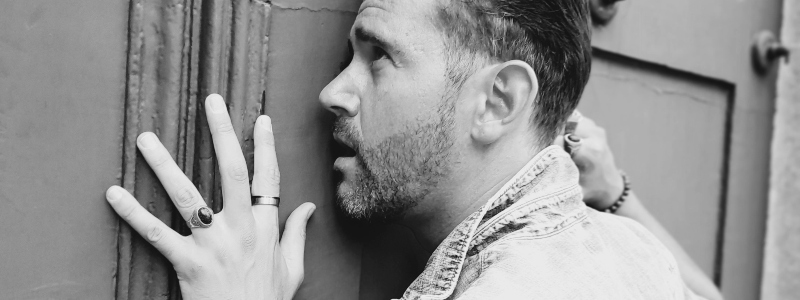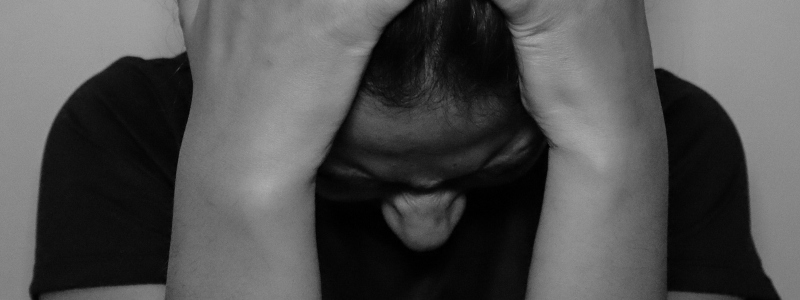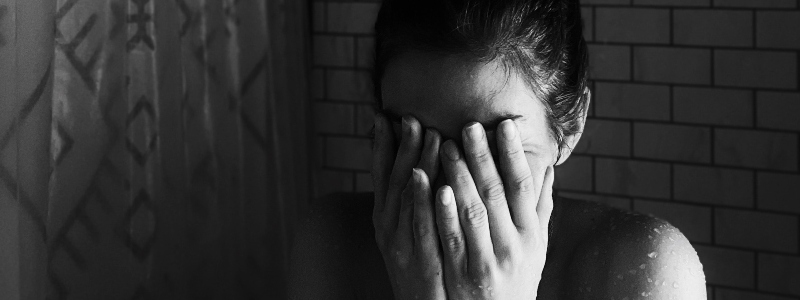Feeling dread is dreadful
A constant or pervasive sense of dread is an almost unbearable experience. Rather than being a feeling, it tends to manifest as a bodily experience that comprises a cluster of symptoms such as a heavy feeling in the pit of one’s stomach, a sense of agitation, fast heart-rate and strong feelings of anxiety. It is also possible for the sense of dread to tip over into a panic attack.
Firstly it’s important to understand that all of our emotions and emotional states (which is what a sense of dread is), have evolved for a reason. For example, it is totally normal to feel a sense of dread when you are in mortal danger, or someone you care deeply about finds themselves in such a predicament. The dread is then comprised of a set of feelings that are arising in response to reality – we are in mortal danger and helpless. However, for most of us we rarely if ever find ourselves in such a position so the dread does not really belong in the here-and-now.
Therefore, there must be other drivers that rather than being external, are internal and are being projected onto the outside world.
What causes this constant sense of dread?
Regular feelings of dread that are either constantly there, or triggered by relatively minor events, are linked to high levels of anxiety. People who are anxious tend to experience the world around them as a place that is threatening and they unconsciously spend their time searching for ‘evidence’ of this.
Anxiety
Anxiety is both an emotion and a part of our temperament – meaning that it constitutes ‘who we are’ as a person. Our levels of anxiety in relation to the world come about through a combination of both nature and nurture interplaying with each other and it stands to clinical reason that a child born and raised to an
anxious parent, will themselves likely experience higher levels of anxiety. We know this from studies with Holocaust survivors and their children and grand-children who often show higher levels of anxiety than the general (un-traumatised) population – in other words, anxiety can be hereditary.
Self-hate
There is a second reason why some people experience a pervasive sense of dread which is not mutually exclusive in relation to high anxiety levels and that is self-hate, which we in the mental health field refer to as paranoia.
Self hating people have a self image that is completely unlovable and unworthy and therefore being able to rely on good things and good relationships is not only inconceivable, but highly anxiety provoking – they will get taken away at any moment.
Life is filled with uncertainties, however, as most of us can rationalise, generally the problems that we encounter in life turn out to be resolvable and are not evidence of anything other than an ‘ordinary life’ being lived.
We can therefore say that the fundamental cause of dread (which is amplified anxiety directed out into the world) is a fundamental hatred of the self and a core of shame.
What can you do to manage feelings of dread?
As self hatred/disgust is felt to be an identity, it is not something that can simply be resolved overnight, however there are certain steps you can take to manage this and combat its debilitating effects.
When we are highly anxious, it is very difficult to think – and the same of course applies to a state of feeling a strong sense of dread.
Getting some perspective – Move away from what is causing you to feel the dread and instead focus on being present in moment to moment activities and ideally those that situate you in your body such as walking or exercising.
Reality test – Once you have calmed your nervous system a little you can start to think about the real likelihood that the dreaded event is going to be catastrophic.
You can work through ‘if’ scenarios such as ‘if I don’t get this job, what will actually happen?’ Some events such as The Climate Crisis are causing people to feel a lot of anxiety and for those who have a pre-disposition towards self hate, this can tip over into dread. What can be helpful is to distinguish between what you can control and what you can’t and then to focus on what you can control – such as getting involved with some form of awareness raising or activism.
What’s outside is actually inside – work on differentiating between a ‘felt state’ and the outside world. We all have feelings about others or events that are ‘projections’ meaning that they are derived from our own inner world, or working model of life, and then super-imposed onto an other person or event. By working on developing a helpful dialogue with ourselves, being compassionate that we are feeling anxiety and dread but that it is not evidence of anything bad, can be very helpful.
Would would someone else think? – If we are able to imagine that much of our dread is a form of self hate projected outwards (paranoia) then we can ask ourselves what someone else might think and feel in relation to the event we are facing – would they feel dread and would they imagine it is going to be a catastrophe? We can then use this to challenge some of our own faulty perspective.
If you can talk about how you feel and what you imagine might happen, your friend may be able to help you reality test in sharing their perspective with you.
This has a two-fold set of benefits: we reality test and we are in relationship with another and when we are in relationship and able to share how we feel, we feel calmer and gain some perspective.
Working through underlying feelings of self hate that manifest as paranoia and anxiety towards the world is not an easy thing to do and this is where talking with a psychotherapist can be extremely helpful. A psychotherapist will work with you to slowly dismantle this faulty self-image you have of yourself and through the therapeutic alliance, help you build a more solid sense of self and healthy self esteem.
Mark Vahrmeyer, UKCP Registered, BHP Co-founder is an integrative psychotherapist with a wide range of clinical experience from both the public and private sectors. He currently sees both individuals and couples, primarily for ongoing psychotherapy. Mark is available at the Lewes and Brighton & Hove Practices.
Further reading by Mark Vahrmeyer
Is there a good way to break up with someone?
Can self help become an identity?
Can psychotherapy help narcissists?


